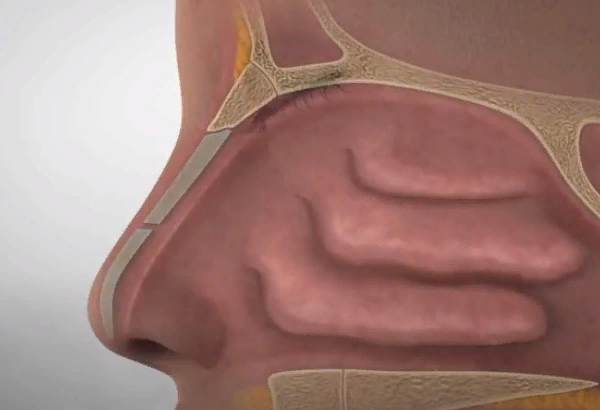Could your asthma be triggered by allergies? If you find yourself struggling to breathe when spring arrives or if your symptoms seem to flare up when the pollen count is high, you might be dealing with allergy-induced asthma. But how can you be sure? Let’s break it down.
What Exactly Is Allergy-Induced Asthma?
Allergy-induced asthma, also called allergic asthma, is a type of asthma that’s triggered by allergens. Common allergens like pollen, mold, dust mites, and pet dander can set off your immune system, leading to inflamed airways. The result? Trouble breathing, wheezing, chest tightness—all symptoms of asthma.
Allergic asthma is quite common. According to the Asthma and Allergy Foundation of America (AAFA), about 60% of the 25 million Americans with asthma have allergic asthma (source). This makes it the most prevalent form of asthma in the United States.
Did you know?
Allergic asthma often goes hand-in-hand with allergic rhinitis (hay fever). Studies show that up to 80% of individuals with asthma also experience nasal allergy symptoms.
Most Common Allergy Triggers for People with Allergic Asthma
| Allergen | Percentage of People Affected (%) |
|---|---|
| Pollen | 80% |
| Dust Mites | 60% |
| Pet Dander | 50% |
| Mold | 40% |
This histogram displays the most common allergy triggers for individuals with allergic asthma. It provides a visual representation of how prevalent each allergen is among patients, helping readers identify which triggers may affect them most.
What Are the Symptoms of Allergy-Induced Asthma?
You might be asking, how is allergy-induced asthma different from regular asthma? The symptoms themselves are actually very similar, including:
- Wheezing (a whistling sound when breathing)
- Shortness of breath
- Chest tightness or pain
- Coughing, especially at night or early in the morning
The key difference is what triggers these symptoms. For people with allergic asthma, these symptoms are specifically triggered by exposure to allergens. For instance, if your asthma flares up after petting a cat, you might be dealing with allergic asthma.
Table: Common Allergens and Their Impact
| Allergen | Common Sources | Potential Asthma Symptoms |
|---|---|---|
| Pollen | Trees, grasses, flowers | Wheezing, coughing, shortness of breath |
| Dust mites | Bedding, carpets, curtains | Chest tightness, difficulty breathing |
| Mold | Damp areas (basements, bathrooms) | Wheezing, coughing |
| Pet dander | Cats, dogs, rodents | Wheezing, sneezing, congestion |
How Can You Confirm If You Have Allergy-Induced Asthma?
The best way to determine if your asthma is allergy-induced is through testing. Here are a few methods your doctor might use:
- Allergy Skin Test: A small amount of a suspected allergen is placed on your skin to see if a reaction occurs. If your skin gets red or itchy, it indicates an allergy.
- Blood Test: A blood test can measure your immune system’s response to specific allergens by checking for levels of IgE antibodies.
- Pulmonary Function Test: This test measures how well your lungs are working and can help identify asthma.
If these tests show you have allergies, and your asthma symptoms align with allergen exposure, you likely have allergic asthma. Consulting with an allergist can be a game-changer in understanding and managing your symptoms.
Did you know?
Allergy skin testing is considered 85-95% accurate for detecting airborne allergens, making it a reliable method for diagnosing allergic asthma (source).
Why Is It Important to Know If You Have Allergy-Induced Asthma?
You may wonder, why does it matter if my asthma is allergy-induced or not? Knowing your asthma type can help you take better control of your symptoms. Here’s why it matters:
- Targeted Treatment: If your asthma is allergy-induced, your doctor may recommend treatments like allergy immunotherapy (allergy shots) to reduce your sensitivity to allergens over time.
- Environmental Changes: Identifying your triggers allows you to make adjustments at home. For example, if dust mites are a problem, you might invest in allergen-proof bedding.
- Medication Optimization: Certain medications, such as leukotriene modifiers, can help block the chemicals released during an allergic reaction that contribute to asthma symptoms.
Did you know?
Allergy immunotherapy can reduce symptoms of allergic asthma by up to 50% over time, making it a worthwhile option for many (source).
Effectiveness of Treatments for Allergy-Induced Asthma
| Treatment Method | Effectiveness (%) |
|---|---|
| Inhaled Corticosteroids | 85% |
| Antihistamines | 65% |
| Leukotriene Modifiers | 70% |
| Allergy Immunotherapy (Allergy Shots) | 75% |
This histogram illustrates the effectiveness of various treatments for allergy-induced asthma. Understanding the success rates of different treatments can help patients make informed decisions about managing their condition.
How to Manage Allergy-Induced Asthma
Managing allergy-induced asthma involves both treating asthma symptoms and reducing exposure to allergens. Here are some strategies that can help:
- Avoid Triggers: Easier said than done, but reducing exposure is key. Use air purifiers, avoid opening windows during pollen season, and keep pets out of the bedroom.
- Medication: Common medications for allergic asthma include inhaled corticosteroids, bronchodilators, and antihistamines. Discuss with your doctor which combination works best for you.
- Allergy-Proof Your Home: Dust mites thrive in warm, humid environments. Use dehumidifiers and wash bedding frequently in hot water to reduce their presence.
- Consider Allergy Shots: If allergens are significantly impacting your quality of life, allergy shots (immunotherapy) may be worth considering. They help desensitize your immune system to specific allergens.
Our Editorial Team’s Advice
Understanding if your asthma is allergy-induced can make a significant difference in how well you manage it. Taking proactive steps to identify and minimize exposure to allergens, combined with the right medical treatment, can reduce symptoms and improve your overall quality of life. Always consult with an allergist to develop a plan that works best for you—your health is worth it!
About the Author
Reyus Mammadli is the author of this health blog since 2008. With a background in medical and biotechnical devices, he has over 15 years of experience working with medical literature and expert guidelines from WHO, CDC, Mayo Clinic, and others. His goal is to present clear, accurate health information for everyday readers — not as a substitute for medical advice.







